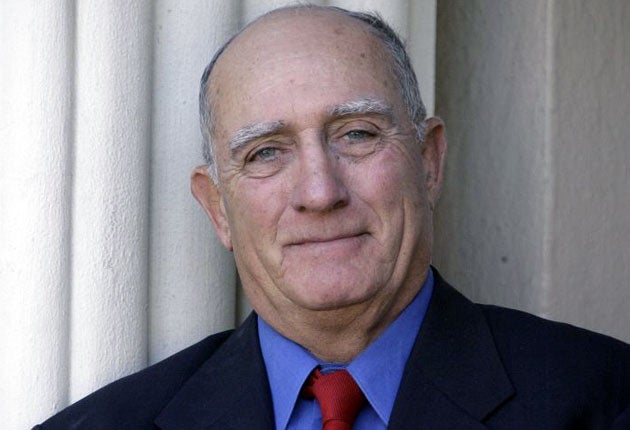Prosecutor says he lied about Polanski's trial
Film director's appeal over conviction may be put in jeopardy by revelation

If Roman Polanski has been sitting in a Swiss prison cell consoling himself with the thought that extradition to the US might lead to his child sex case being swiftly thrown out, he may be forced to think again.
The film director's intended appeal against his conviction has been dealt a serious blow, after one of the lawyers who had previously admitted being involved in misconduct during the 1977 trial suddenly decided to change his story.
David Wells, the prosecutor who last year told an HBO documentary that he colluded with Mr Polanski's judge to increase his jail sentence, has now called that claim a complete fabrication. "I'm a guy who cuts to the chase," he said yesterday. "I lied."
He'd been persuaded to embellish his story after the makers of the documentary Roman Polanski: Wanted and Desired – which was co-produced by the BBC and won an Emmy for director Marina Zenovich – said it would only be shown in France. "I know I shouldn't have done it, but I did," admitted Mr Wells. "The director told me it would never air in the States. I thought it made a better story if I said I'd told the judge what to do," he told legal journalist Marcia Clark.
The revelation may jeopardise Mr Polanski's planned defence. When the director appealed against his conviction earlier this year, Mr Wells's comments helped convince a Los Angeles judge that there was evidence of "substantial misconduct" in his trial.
During the 1977 case, Mr Polanski pleaded guilty to unlawful sex with an underage girl, following a plea bargain intended to prevent his victim, a 13-year-old budding model called Samantha Geimer, from having to give evidence.
Mr Polanski was sentenced to 90 days of psychiatric evaluation prior to sentencing. However, he served just 42, before fleeing to France, after hearing that his judge, the late Laurence Rittenband, was planning to renege on the plea bargain and send him back to prison.
Last year's HBO documentary alleged that Judge Rittenband, who died in 1993, was motivated by anti-Semitism in his treatment of Mr Polanski, revealing that he was a member of a county club which barred Jews. The film also saw Mr Polanski's defence lawyer, Douglas Dalton, and one of his prosecutors, Roger Gunson, allege misconduct by the judge. Their criticisms of the trial still stand. However without the support of Mr Wells, Mr Polanski's attempt to secure a "mistrial" verdict will be substantially trickier.
Should the US succeed in securing his extradition, the Oscar-winning director does have another legal option: he could withdraw his guilty plea and go for a jury trial on all of the crimes he was originally charged with, hoping that the passage of time will make it harder to prove his guilt.
That would represent a huge gamble. If convicted, Mr Polanski, 76, could spend the rest of his life in prison. Even if acquitted, he's likely to remain in custody throughout the lengthy trial: given his previous form, it would take a bold judge to grant him bail.
Join our commenting forum
Join thought-provoking conversations, follow other Independent readers and see their replies
Comments
Bookmark popover
Removed from bookmarks